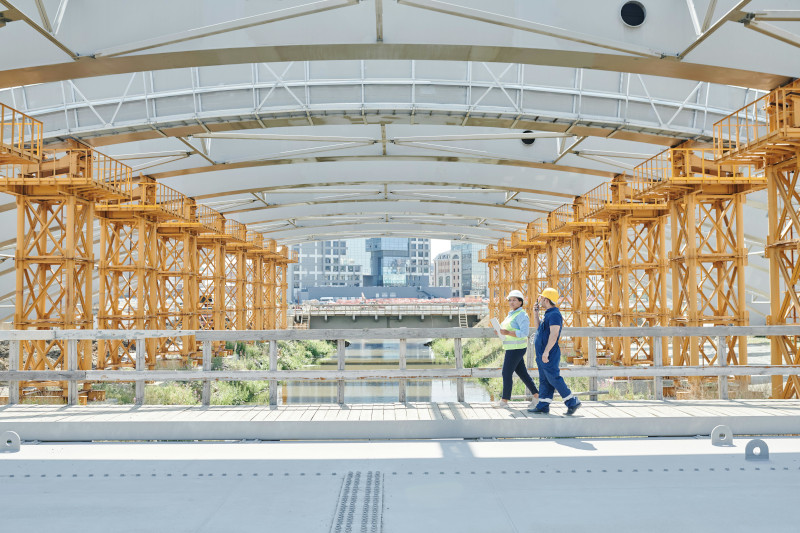Exeter, Plymouth, Torquay
In the bustling South West of England, cities such as Exeter, Plymouth, and Torquay exemplify a vibrant mix of historic charm and contemporary development. As these urban centres continue to evolve, ensuring safety standards through diligent workplace and construction site inspections remains paramount. These inspections not only uphold legal compliance but also foster a culture of safety and efficiency across the region’s diverse industries.
The Importance of Inspections in the Region
Workplace and construction site inspections serve as vital tools in maintaining health and safety standards. In Exeter, a city renowned for its medieval cathedral and university, the proliferation of new commercial and residential developments calls for meticulous oversight. Plymouth, with its significant naval and maritime industries, sees a continuous demand for rigorous safety checks, especially on shipyards and industrial facilities. Meanwhile, Torquay’s reputation as a seaside resort and the accompanying hospitality and leisure sectors require inspections to ensure safe working environments for staff and visitors alike.
The core purpose of these inspections is to identify potential hazards before they result in accidents or injuries. They also reinforce compliance with statutory regulations such as the Health and Safety at Work Act 1974, along with industry-specific standards laid out by bodies like the Construction (Design and Management) Regulations 2015 and the Control of Substances Hazardous Substances Regulations 2002.
Local Variations and Challenges
While the fundamental principles of health and safety are consistent across the UK, regional differences influence inspection priorities. In Exeter, historic preservation efforts intersect with modern construction, necessitating specialised inspections to safeguard heritage assets while ensuring building safety. This can involve delicate assessments of old stonework, ancient foundations, and integrated modern systems.
In Plymouth, the maritime environment introduces unique challenges. Inspections often extend beyond traditional construction concerns to include marine safety, firefighting capabilities on vessels, and the handling of hazardous materials related to naval equipment. The proximity to the waterfront also means inspections must consider environmental protection, such as preventing contamination of coastal waters.
Torquay, with its numerous hotels, restaurants, and leisure facilities, faces the ongoing task of inspecting for compliance with health and safety regulations tailored to the hospitality industry. This includes fire safety audits, risk assessments related to guest safety, and ensuring proper maintenance of facilities.
Inspection Procedures and Best Practices
Conducting thorough inspections involves a systematic approach. Inspectors typically begin with a comprehensive review of documentation, including risk assessments, method statements, and previous inspection reports. On-site, they examine structural integrity, electrical systems, scaffolding, equipment, and access routes, ensuring all are compliant with current standards.
In Exeter’s historic buildings, inspectors often collaborate with conservation specialists to balance safety with preservation. In Plymouth’s industrial zones, emphasis is placed on the safe handling of hazardous substances and machinery safeguards. In Torquay’s leisure venues, inspections frequently focus on fire prevention measures, emergency exits, and hygiene standards.
Best practices include engaging with site management and workers, promoting a culture of safety awareness, and providing clear, actionable reports. Follow-up inspections are crucial to verify that recommended improvements have been implemented effectively.

Regulatory Framework and Enforcement
All inspections are carried out within a strict regulatory framework designed to protect workers and the public. Local authorities, in conjunction with the Health and Safety Executive (HSE), oversee enforcement. Failure to comply can result in penalties ranging from fines to prosecution, especially in cases of negligence leading to accidents.
In Exeter, the local council’s environmental health teams often coordinate inspections for commercial premises, while the HSE takes a lead role in overseeing larger construction projects. Plymouth’s maritime safety inspections are conducted in partnership with the Maritime and Coastguard Agency, ensuring vessels and waterfront facilities meet required standards. In Torquay, a combination of local authority inspections and industry-specific audits help maintain high safety standards across the hospitality sector.
The Role of Training and Continuous Improvement
Effective inspections rely heavily on trained inspectors who possess a thorough understanding of building regulations, safety procedures, and industry-specific hazards. Ongoing professional development is vital to keep pace with evolving standards, technological advancements, and emerging risks.
Moreover, fostering a safety-first culture within organisations enhances the effectiveness of inspections. Regular training sessions, safety briefings, and open communication channels contribute to a proactive approach towards hazard identification and risk mitigation.
Conclusion
As Exeter, Plymouth, and Torquay continue to develop and modernise, the importance of rigorous workplace and construction site inspections cannot be overstated.

